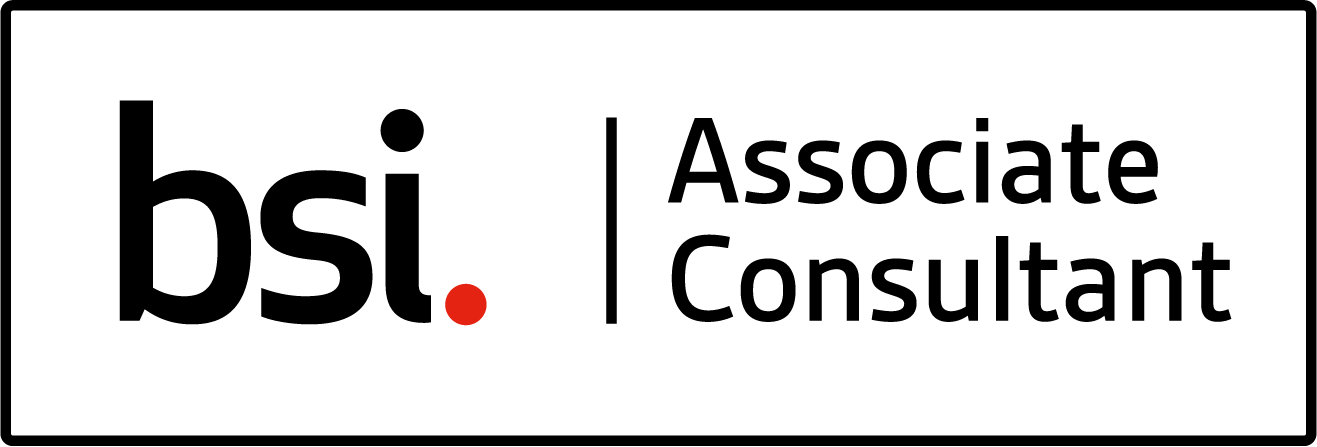
Integrated ISO Business Management Systems
More than ever there is a need for Quality, Environment, Energy and Health & Safety to be at the core of strategic decision making of any company. The advent of new ISO standards makes this abundantly clear with Senior Leadership being a core part of the assessment process.
Quality Management is fundamental to ensuring that your customers receive the goods and services they wanted on time every time. A good Quality Management System will enable you to monitor and measure quality and performance across the business allowing you to identify areas for improvement.
ISO 9001 is the internationally recognised Quality Management System standard that can benefit any size organisation and is designed to be a powerful business improvement tool. We can help implement and maintain a Quality Management System that meets the requirements of the ISO 9001 standard whilst allowing you the freedom to manage customer requirements and improve the business.
Good environmental management is much more than meeting environmental requirements – good environmental management can have a positive impact on the profitability of an organisation. Good business practice seeks to reduce waste, reduce energy costs, use raw materials and resources more efficiently, and this is no different from good environmental management.
ISO 14001 provides guidance on how to consider multiple aspects of your business, whether it is procurement, storage, distribution, product development, manufacturing, or general operations, so that it reduces its impact on the environment. It also requires that you evaluate how you manage emergency response, customer expectations, interested parties and the environmental impact you have.
Aside from business efficiencies, a good environmental management system should also help you navigate the raft of environmental legislation and compliance requirements that are part of business today. With the experience of implementing Environmental Management Systems in a range of different business areas and organisation sizes we can help you develop a management system that will support your aims and objectives for your business.
Together with ISO 9001 and 14001, ISO 45001 make up the ‘big three’ standards that underpin any business. ISO 45001 replaces the old OHSAS 18001 system and is designed to help organisations implement management systems to prevent work-related injury and ill-health and to provide safe and healthy workplaces.
It is a business requirement that Health & Safety is effectively implemented across all businesses and ISO 45001 is an effective occupational health and safety management system will help you to protect and enhance your most important asset, your people.
We can help you build organisational resilience by designing and implementing a framework that meets the requirements of the standard and as an international standard is accepted across geographic, political, economic, commercial and social boundaries.
It is in everyone’s interests that organisations effectively manage and reduce energy usage and cost. Good energy management is about using energy as effectively and as efficiently as possible.
ISO 50001 provides a structure and a framework to large and small businesses to be more sustainable whilst meeting relevant legislation. As such, implementing ISO 50001 will mean that you have met the requirements of ESOS whilst providing a systematic approach to energy management.
A good Energy Management System sits very comfortably with the requirements of Environmental and Sustainability Management and we can help you implement either an Integrated Management System that incorporates Energy Management, or a standalone Energy Management System.
Good Asset Management will always contribute to better operating performance and results and can have a beneficial effect of improving profitability. ISO 55001 provides a structured approach to Asset Management and allows you to focus on developing a management system that focuses on lifecycle and the optimisation of assets, reducing overall cost whilst aiding you in meeting necessary performance and safety requirements.
With the experience of implementing Asset Management Systems and providing Asset Management training on behalf of BSI, we can help you design and implement an Asset Management System that not only enhances the business but meets the requirement of the standard
Business Continuity Management is far more than just identifying the risks and threats facing a business. It is well known that the vast majority of businesses that find themselves subject to a major incident such as fire, cyber attack or loss of key customers or staff never recover. The recent pandemic demonstrated that it was organisations that had a back-up plan that on the whole survived.
Business Continuity Management is not only about surviving the incident but focuses on how quickly the organisation can return to normal operations. It is about ensuring that all feasible threats are identified, and plans put in place to respond to those threats. ISO 22301 provides organisations with a structured approach to develop business continuity plans to protect against, reduce the likelihood of, and ensure your business recovers from disruptive incidents. We can help you assess the likelihood of incidents and using a structured approach develop a business management system that enables your business to return to normal operations as quickly as possible.
The key to this is not to think in terms of Quality, Environment or Energy in isolation, but rather as a package that can enhance the business and add value to the bottom line. Any business leader would want to reduce waste, reduce energy costs, use raw materials and resources more efficiently, know what their customers think of them and be legally compliant. But so do the various standards!
By incorporating the business management standards into the ethos of a company there is a natural drive to be better – better at meeting the customers’ requirements, whilst taking action to improve business performance.
Our approach is to consider the company from a holistic point of view. The introduction of the High-Level Standard for Standards means that it is now much easier to develop an Integrated Business Management System that incorporates Quality, Environment, Energy, Health & Safety, Business Continuity and Asset Management or variations on that theme. Instead of several different management systems, our approach is to bring these together building on your existing business practices and adapting the integrated management system to suit your requirements – not adapting your practices for the needs of the standard.
Having developed an integrated business management system, the question then is whether certification to one or all of the relevant standards is required or necessary. In many cases it is a requirement of a tendering process that an organisation demonstrate that it meets certain acceptable levels of competency in the various disciplines, and this can best be demonstrated by certification by a recognised Certification Body. We have extensive experience of working with a number of these bodies and can advise accordingly.


